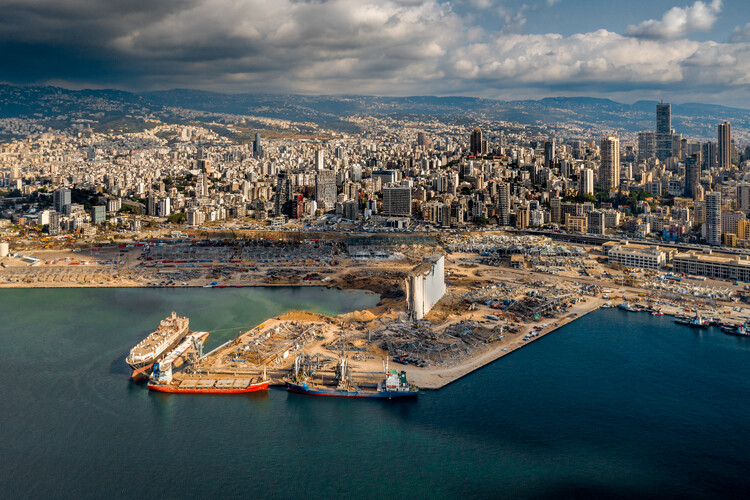
For Design and the City's sixth episode - a podcast by reSITE on how to make cities more liveable, the team interviewed Christele Harrouk, Archdaily's Managing Editor and Salim Rouhana, Senior Urban Governance and Resilience Task Team Leader at the World Bank Group. The two Beirut natives talk about the devastating explosion in August last year and share their perspectives on what rebuilding the city could look like.
ReSITE - a global non-profit acting to improve the urban environment, launched the second instalment of its Design and the City podcast earlier this year, with previous guests including Winy Mass, Thomas Heatherwick, Julia Gamolina, and Gary Hustwit. Covering a wide range of inter-disciplinary topics, conversations on the podcast have ranged from issues such as surveillance and security to how to tackle gentrification in growing cities.

Interviewed by Alexandra Siebenthal, Christele Harrouk and Salim Rouhana, two Beirut natives with architecture backgrounds, discuss the aftermath of the explosion in the city's harbour on August 4 2020. Through the two-part interview, Harrouk and Rouhana reveal their impressions on the distinctive atmosphere of Beirut and describe their personal experience of the event. The two trace the unfolding of the emergency response after the devastating blast that scarred the city and share their views on the reconstruction efforts.


Architect and urban designer Christele Harrouk has detailed the extent of the city's destruction in the Archdaily article Beirut: Between a Threatened Architectural Heritage and a Traumatized Collective Memory and has interviewed Lebanese architects Bernard Khoury, Paul Kaloustian, and Lina Ghotmeh about the different perspectives on reconstruction. In the podcast, Harrouk details how the event impacted the local architectural heritage, giving a compelling description of the importance of the affected neighbourhoods for the urban life of Beirut. She goes on to explain the bottom-up initiatives that shaped an emergency response and are planting the seeds for a local-driven regeneration. Harrouk then talks about what resiliency means for a community faced with a string of challenges and discusses how contemporary buildings might be reconstructed, preserving some traces of the event now part of a collective experience.


With a background in architecture and political science, Salim Rouhana was involved in preparing the Beirut Rapid Damage and Needs Assessment, along with the Reform, Recovery & Reconstruction Framework on behalf of the World Bank following the August 2020 blast. In the podcast, Rouhana gives an insight into how entities such as the World Bank, the EU and the United Nations coordinated the day after the explosion to start creating the framework which would quantify the level of damage and the needed resources while also explaining the critical role played by NGOs and civil society in the emergency response. He then details the different scenarios the current situation could lead to, stressing that Beirut has the opportunity to "recover better" as a more sustainable, inclusive urban environment. Finally, he stresses the importance of a collective vision for rebuilding Beirut and shares his ideas for the city's future.




























